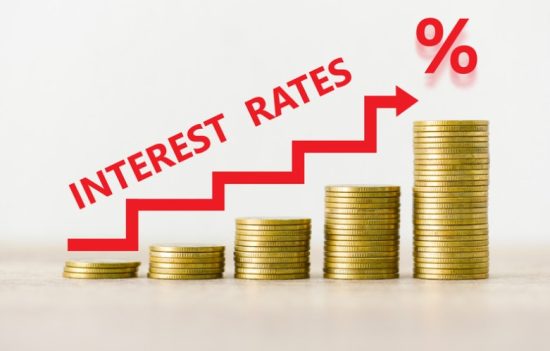Welcome to our guide on everything you need to know about mortgage rates in Ontario. If you’re a first-time home buyer or looking to refinance your current mortgage, understanding the ins and outs of mortgage rates is crucial. Mortgage rates can make a big difference in how much money you’ll be paying over time, so it’s important to have all the information available before making any decisions.
In this blog post, we will cover everything from the types of mortgages available in Ontario to factors that influence your rate. So sit back, relax and let’s dive into the world of mortgage rates!
What is Mortgage Rate in Ontario?

Mortgage rates in Ontario refer to the interest rate that a borrower pays on their mortgage. This is the cost of borrowing money from a lender, which can be either fixed or variable. Fixed-rate mortgages have an interest rate that remains constant throughout the term of your loan, while variable-rate mortgages fluctuate with changes in market conditions.
As of June 2023, the best 5-year fixed mortgage rate in Ontario with a high ratio is 4.83%. In Ontario, 5.8% is the best high-ratio, five-year variable mortgage rate.
In Ontario, there are various types of mortgages available to borrowers. These include conventional mortgages, high-ratio mortgages, and open and closed mortgages. A conventional mortgage requires a down payment of at least 20%, while a high-ratio mortgage allows you to borrow more than 80% of the purchase price with less than 20% down payment.
The Bank of Canada sets its overnight lending rate which then influences other lenders’ prime rates – this determines how much they charge for loans such as residential home loans (mortgages). However, each lender has its way of calculating what it charges customers for borrowing money.
Types of Mortgages Available in Ontario
As a homebuyer in Ontario, it’s important to understand the different types of mortgages available to you. The two main types are fixed-rate and variable-rate mortgages.
- A fixed-rate mortgage does exactly what it says on the tin: the interest rate is fixed for the duration of the loan. This means that your monthly payments will remain consistent as well. Fixed-rate mortgages provide predictability and stability for homeowners who want to know exactly how much they’ll be paying each month.
- On the other hand, variable-rate mortgages have interest rates that can fluctuate over time based on changes in the prime lending rate set by the Bank of Canada. While this can lead to savings if rates decrease, it also means that your monthly payments could increase if rates rise.
- There are also hybrid or combination mortgages which allow you to split your mortgage into both a fixed and variable rate portion. These options provide flexibility while still offering some level of predictability.
Choosing between these options comes down to personal preference and financial goals. It’s always best to consult with a trusted mortgage professional before making any decisions about which type of mortgage is right for you.
How Mortgage Rates Are Determined?

Mortgage rates in Ontario are determined by a variety of factors, including economic conditions and the lender’s risk assessment.
- One major factor that influences mortgage interest rates is the Bank of Canada’s overnight rate, which affects the prime lending rate used by banks to set their rates. When the overnight rate increases or decreases, lenders adjust their prime lending rate accordingly.
- Another key factor is inflation expectations, as lenders need to account for potential losses due to inflation eroding the value of loan payments over time. The strength of the housing market also plays a role in determining mortgage rates – during times of high demand and low supply, lenders may charge higher rates due to increased competition among borrowers.
- Creditworthiness also plays a significant role in determining interest rates on mortgages. Borrowers with good credit scores and stable income streams are generally considered lower-risk borrowers and can often secure better interest rates than those with poor credit histories or unstable employment situations.
There are numerous complex factors involved in determining mortgage interest rates in Ontario, making it important for borrowers to carefully consider their options before choosing a lender and negotiating terms.
Factors Influencing Mortgage Rates in Ontario
Several factors determine the mortgage rates in Ontario.
- The first one is the level of risk that lenders face when giving out a loan. If you have a high credit score and stable income, your interest rate will be lower than someone with poor credit or unstable employment history.
- Another factor that influences mortgage rates is inflation and economic conditions in Canada. When the economy grows, and there’s an increase in demand for borrowing, it leads to higher mortgage rates as lenders try to balance their supply of funds with consumer demand.
- The Bank of Canada also plays a crucial role in determining mortgage rates through its monetary policy decisions. When the bank raises interest rates, it becomes more expensive to borrow money from financial institutions; therefore, borrowers end up paying higher interest on their mortgages.
- The length of your mortgage term also affects your interest rate since longer-term loans typically come with higher interest rates than shorter-term ones. Lenders charge more for longer-term loans because they carry greater risks over time.
- Competition among lenders can affect how much they offer for a given loan amount. As such, shopping around can help you find better terms and lower mortgage rates.
- Understanding these factors influencing mortgage rate fluctuations can help you make informed decisions about financing your home purchase in Ontario.
How to Get the Best Mortgage Rate in Ontario?

Getting the best mortgage rate in Ontario can save you thousands of dollars over the life of your mortgage. Here are some tips to help you secure a great deal:
- Shop around: Don’t accept the first offer you are given. Check with multiple lenders and compare rates, terms, and conditions.
- Improve your credit score: A higher credit score will increase your chances of getting approved for a lower interest rate.
- Increase your down payment: Lenders like to see a larger down payment because it means less risk on their part, which could result in a lower interest rate.
- Consider shorter loan terms: Shorter loan terms usually come with lower interest rates than longer ones since they represent less risk for lenders.
- Get pre-approved: Getting pre-approved not only gives you an idea of what you can afford but also shows sellers that you’re serious about buying, which may lead to better negotiating power.
By following these steps and working closely with your lender or mortgage broker, you’ll be well on your way to securing the best possible mortgage rate in Ontario.
Tips for Reducing Your Mortgage Interest Rate
Reducing your mortgage interest rate can help reduce the overall cost of homeownership. Here are some tips to help you get a lower rate:
- Improve Your Credit Score: Lenders use credit scores as an indicator of risk, so having a high score can result in lower interest rates.
- Increase Your Down Payment: A higher down payment can reduce the amount you need to borrow and may result in a lower interest rate.
- Shop Around for Rates: Different lenders offer different rates, so it’s important to compare offers from multiple lenders before deciding on one.
- Consider a Shorter Mortgage Term: Shorter terms often come with lower interest rates, but keep in mind that this will also increase your monthly payments.
- Pay Points Upfront: If you have extra cash available at closing, paying points upfront can help buy down your interest rate over time.
By following these tips, you may be able to secure a more affordable mortgage and save thousands of dollars over the life of your loan.
Alternatives to Mortgages In Ontario

While mortgages are a popular choice for homeownership in Ontario, there are alternatives to consider. One such option is a home equity loan, which allows you to borrow against the value of your home. This can be useful if you need access to a large sum of money for things like renovations or debt consolidation.
Another alternative to mortgages in Ontario is a personal loan from a bank or credit union. While these loans typically have higher interest rates than mortgages, they may be easier to obtain and have more flexible repayment terms.
If you’re looking for an investment opportunity with less risk than buying property, real estate investment trusts (REITs) are another option. These allow you to invest in real estate without actually owning property yourself.
Renting can also be an alternative to getting a mortgage in Ontario. While it doesn’t offer the long-term benefits of ownership, renting can provide flexibility and lower upfront costs.
Your situation and financial objectives will determine the best choice. It’s important to explore all options before making any major decisions about homeownership or investments.
Conclusion
Getting a mortgage in Ontario can be overwhelming, especially for first-time homebuyers. However, understanding what mortgage rates are and how they work is essential to finding the right deal that suits your financial situation.
When shopping for mortgages in Ontario, it’s important to do your research and compare rates from different lenders. Use online tools like mortgage calculators and consult a reputable broker for professional advice on selecting the best option.
A lower interest rate can help you save thousands of dollars over the course of your mortgage, so keep that in mind. So take advantage of all available opportunities to improve your credit score and reduce your debt-to-income ratio before applying for a loan.
By following these tips and being diligent about monitoring changes in the market, you’ll have everything you need to secure the best possible mortgage rate in Ontario.
FAQs on
1. What is a better 3 or 5-year fixed mortgage rate?
A five-year fixed-rate mortgage might be the best option for you if you place high importance on predictability and stability. A three-year fixed-rate mortgage would be a better choice, though, if you’d want greater flexibility and the chance to benefit from falling interest rates sooner rather than later.
2. How long of a mortgage term should I get?
Lenders offer lower rates on shorter-term mortgages to offset the danger of increasing your rate after just three years. You have years’ worth of additional predictability built into your loan when you take out a five-year or ten-year mortgage.
3. What is the average age to pay off a mortgage in Canada?
According to recent data, those between the ages of 45 and 54 are the most likely to own a mortgage. But keep in mind that the typical mortgage is paid off in 25 to 30 years. In their 20s or 30s, most people typically get their first mortgage.
4. What do I do after I pay off my mortgage?
After the mortgage is paid off, the homeowner has two options: Remain in the home and take advantage of their lower monthly expenses. Buy something else with the sale’s revenues. Use a home mortgage to remortgage the property to access funds without selling and relocating.










